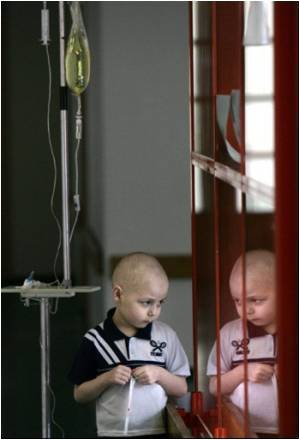US scientists believe molecular targets to treat childhood muscle cancer could be on the anvil with the discovery of its cell of origin.

Childhood muscle cancer, or rhabdomyosarcoma, is a condition that when spread throughout the body has a low survival rate — just 20 percent to 40 percent. In adults with soft tissue sarcomas, survival can be even lower. Now, for the first time, the researchers have shown from where these tumors arise and what drives them to grow and spread.
“A commonly held belief is that cancers should be cut out, burned out or killed. There is a fourth option — to have cancer cells choose to become normal cells, in this case muscle cells,” said Charles Keller, M.D., principal investigator of the study, leader of Pediatric Cancer Biology Program in the Papé Family Pediatric Research Institute at OHSU Doernbecher Children’s Hospital, and a member of the OHSU Knight Cancer Institute and the Oregon Stem Cell Center at OHSU.
“At least for a subset of patients, possibly the ones with hereditary cancer, one approach suggested by our research might be to administer drugs that muscle cancers to convert into non-cancerous muscle fibers. This is a minority opinion, but one held by a small group of careful scientists throughout the United States and abroad,” said Keller.
The survival rate for childhood muscle cancer that has spread has remained unchanged for more than 40 years. It has reached the point that increasing the intensity of chemotherapy, radiation or surgery is no longer having any improved effect, Keller explained. He and colleagues have taken a novel approach in the laboratory as well as in new clinical trials, using non-chemotherapy medicines to inhibit “molecular targets” such as growth factor receptors.
Suman Malempati, M.D., assistant professor of pediatrics (hematology/oncology) and director of the Oncology Developmental Therapeutics Program at OHSU Doernbecher Children’s Hospital, is the lead on a national clinical trial of one such growth factor inhibitor. This is the Children’s Oncology Group’s first trial incorporating a molecularly targeted drug into a clinical trial for childhood muscle cancer and was funded by CureSearch for Children’s Cancer, a nationwide network of hospitals, doctors and leading scientists that develop new treatments for childhood cancer.
Advertisement
Advertisement







